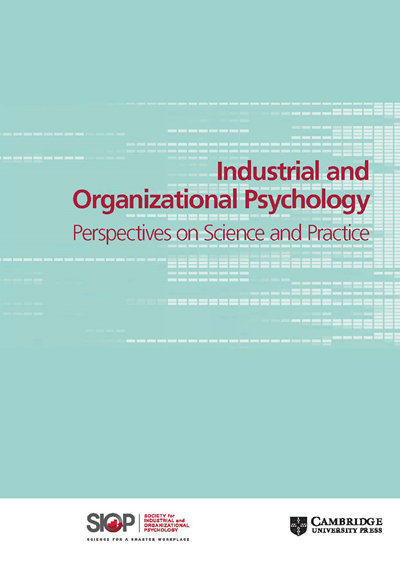Supporting women during motherhood and caregiving necessary, but not sufficient: The need for men to become equal partners in childcare
IF 4.3
3区 心理学
Q1 PSYCHOLOGY, APPLIED
Industrial and Organizational Psychology-Perspectives on Science and Practice
Pub Date : 2023-05-09
DOI:10.1017/iop.2023.12
引用次数: 0
Abstract
The timely focal article by Gabriel et al. (2023) spotlighted critical issues that women academics face around fertility, pregnancy, motherhood, and caregiving. We add to this perspective by argu-ing that it is not sufficient to only focus on women during motherhood and caregiving, and that for women to truly succeed in academia (and beyond) we need men to become equal partners in childcare, alleviating the burden placed mostly on women. We thus aim to highlight that childcare is not only a women ’ s issue but rather a parents ’ issue. Positioning childcare and caregiving as a women ’ s issue risks perpetuating traditional gender stereotypes. Instead, bringing men into the picture provides both men and women with greater opportunities to succeed in both work and family domains. 1 We therefore argue that, in addition to supporting women during motherhood and caregiving, traditional gender stereotypes need to be challenged, and men should be encouraged and provided with pathways to become equal partners during these critical periods. This, we believe, can in turn help change the norms surrounding childcare and performance cultures in academia, which are not aligned with caregiving.在母亲和护理期间支持妇女是必要的,但还不够:男性需要成为育儿方面的平等伙伴
Gabriel等人(2023)及时发表的焦点文章强调了女性学者在生育、怀孕、母性和照顾方面面临的关键问题。我们认为,仅仅关注女性在做母亲和照顾孩子的过程中是不够的,女性要想在学术界(以及其他领域)真正取得成功,我们需要男性在照顾孩子方面成为平等的伙伴,减轻主要由女性承担的负担。因此,我们旨在强调,儿童保育不仅是妇女的问题,而且是父母的问题。将儿童保育和看护定位为女性的问题可能会使传统的性别刻板印象永久化。相反,让男性参与进来能为男性和女性在工作和家庭领域取得成功提供更多的机会。因此,我们认为,除了在做母亲和照顾孩子期间支持妇女外,还需要挑战传统的性别陈规定型观念,应鼓励并为男子提供在这些关键时期成为平等伙伴的途径。我们相信,这反过来可以帮助改变学术界围绕儿童保育和表现文化的规范,这些规范与护理不一致。
本文章由计算机程序翻译,如有差异,请以英文原文为准。
求助全文
约1分钟内获得全文
求助全文
来源期刊

Industrial and Organizational Psychology-Perspectives on Science and Practice
PSYCHOLOGY, APPLIED-
CiteScore
7.70
自引率
10.10%
发文量
85
期刊介绍:
Industrial and Organizational Psychology-Perspectives on Science and Practice is a peer-reviewed academic journal published on behalf of the Society for Industrial and Organizational Psychology. The journal focuses on interactive exchanges on topics of importance to the science and practice of the field. It features articles that present new ideas or different takes on existing ideas, stimulating dialogue about important issues in the field. Additionally, the journal is indexed and abstracted in Clarivate Analytics SSCI, Clarivate Analytics Web of Science, European Reference Index for the Humanities and Social Sciences (ERIH PLUS), ProQuest, PsycINFO, and Scopus.
 求助内容:
求助内容: 应助结果提醒方式:
应助结果提醒方式:


